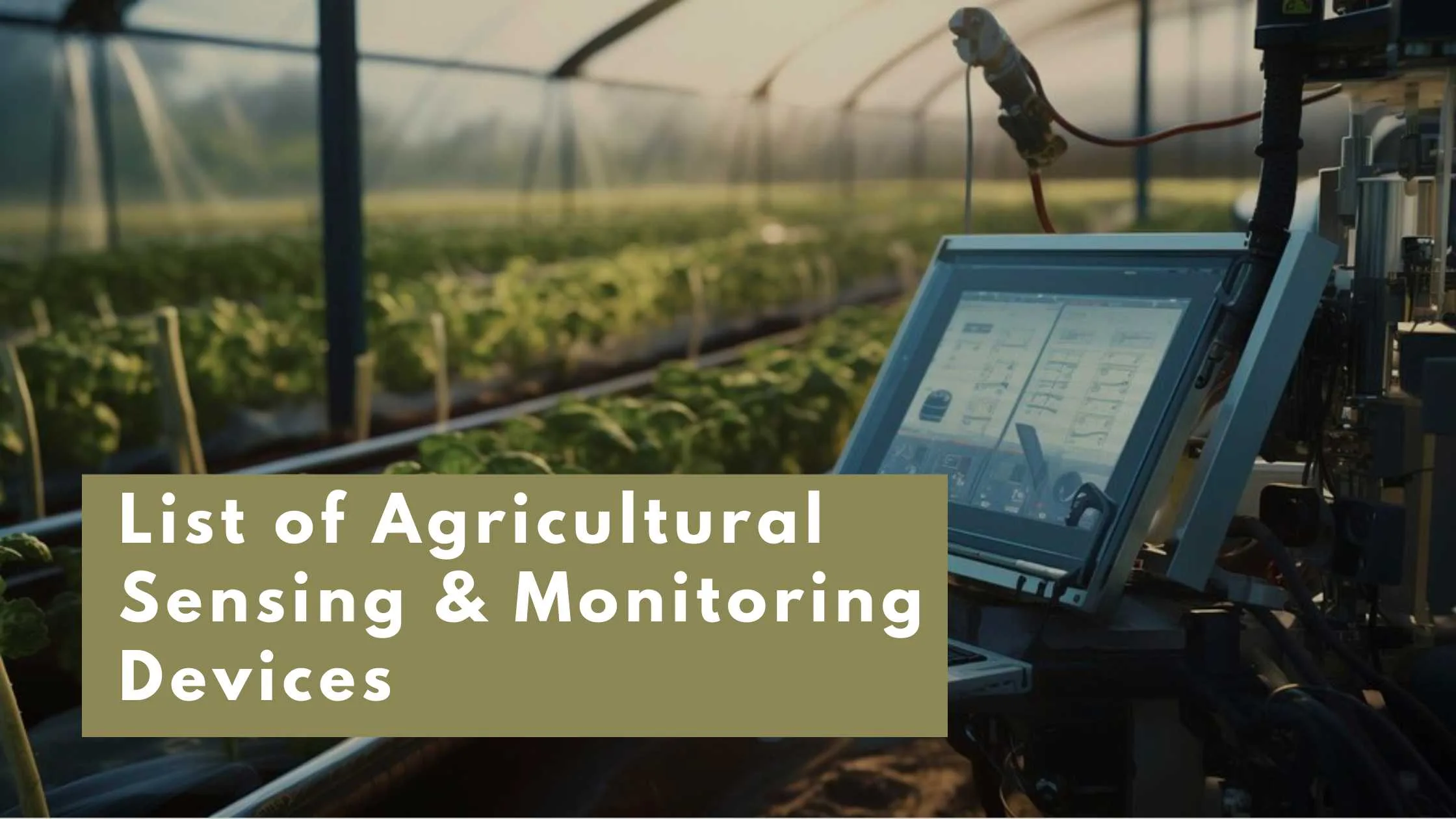What is an Agriculture Monitoring system?
An agriculture monitoring system uses technology to track, measure, and manage various aspects of agriculture production. It involves the use of multiple sensor Devices. Moreover, software to collect data on crop growth, soil moisture, weather patterns, and other vital factors that affect agriculture production.
Agriculture monitoring systems can be implemented at various levels, from individual farms to entire regions or countries. Additionally, they work with different crops, including grains, fruits, vegetables, and livestock. Farm machinery in India helped many farmers to optimize their farming.
Secondly, the system tracks crop health, detects crop diseases, optimizes irrigation and fertilization, and identifies other potential problems. Moreover, it helps farmers make informed decisions about planting, harvesting, and other critical agriculture-related activities.
Agriculture monitoring systems can implemented at various levels, from individual farms to entire regions or countries. Additionally, they work with different crops, including grains, fruits, vegetables, and livestock.
Then, this system helps farmers improve crop yields, reduce costs, and enhance sustainability using data-driven insights. Moreover, these are helpful to optimize agricultural practices.
Importance of Monitoring in Agriculture
Monitoring is a critical aspect of agriculture. Because it helps farmers to track various aspects of their crop production and make informed decisions based on data, here are some key reasons why monitoring is essential in agriculture:
Optimizing crop growth
Farmers can ensure that their crops are growing under optimal conditions by monitoring soil moisture, temperature, and nutrient levels. This can help to increase yields and improve crop quality.
Detecting problems early
Monitoring can help farmers to detect problems such as pests, diseases, or nutrient deficiencies before they become severe. This can allow for timely intervention, minimizing crop yield and quality impact.
Efficient use of resources
Monitoring helps farmers to optimize their use of resources such as water and fertilizer. This can help to reduce waste and improve efficiency, leading to cost savings and environmental benefits.
Improving sustainability
By monitoring soil health and other environmental factors, farmers can adopt more sustainable practices. This can conserve resources and reduce the impact of agriculture on the environment.
Better decision-making
By collecting and analyzing data on crop growth, weather patterns, and other factors, farmers can make more informed decisions about planting, harvesting, and other agriculture-related activities.
Further, monitoring is essential for farmers to manage their crop production while also promoting sustainability and environmental stewardship.
Benefits of using Agriculture sensors for farmers
Agriculture sensors are devices used to collect data on factors that affect agriculture production. Here are some key benefits of using agriculture sensors for farmers:
Improved crop yields
By collecting real-time data on soil moisture, temperature, and nutrient levels, farmers can optimize their irrigation and fertilization practices. This ensures farmers that their crops are growing under optimal conditions. This can help to increase yields and improve crop quality.
Early detection of problems
Agriculture sensors can help farmers to detect problems such as pests, diseases, or nutrient deficiencies before they become severe. This can allow for timely intervention, minimizing crop yield and quality impact.
Efficient use of resources
Agriculture sensors can help farmers to optimize their use of resources such as water and fertilizer. This can help to reduce waste and improve efficiency, leading to cost savings and environmental benefits.
Precision agriculture
Agriculture sensors can used to install precision agriculture practices. This involves tailoring farming practices to specific areas of a field based on data collected from sensors. This can reduce inputs and maximize yields in each area.
Data-driven decision-making
Furthermore, agriculture sensors can provide farmers with valuable data that can help improve crop yields, reduce costs, and enhance sustainability.
Hence, monitoring in agriculture is of great importance as it is helpful for farmers in collecting data about fields, yield, production, and assets. In this context, the farmers can also consider the Importance of Yield Monitors in Agriculture for better yield results.
List of Agricultural and Monitoring Devices-
Weather stations
Devices that measure weather parameters such as temperature, humidity, rainfall, and wind speed to help farmers make informed decisions.
Soil sensors
Devices that measure soil moisture, pH levels, and nutrient content to optimize irrigation and fertilization.
Irrigation controllers
These devices regulate the amount and timing of water delivery to crops based on soil moisture data collected by sensors.
Crop sensors
Devices measuring plant growth and development allow farmers to track crop health and detect potential problems.
Drones
Unmanned aerial vehicles equipped with sensors and cameras. They can provide real-time images and data on crop health, plant growth, and soil conditions.
GPS/GNSS systems
Global Positioning System/Global Navigation Satellite System devices that can track farm equipment’s location and soil conditions. And create precision maps for planting and harvesting.
Livestock monitoring systems
Devices that track animal health, behavior, and productivity, often through wearable sensors or implanted chips.
Grain moisture meters
Devices that measure the moisture content of the grain help farmers determine the optimal time for harvesting and storage.
Crop yield monitors
Devices that measure the amount of crop harvested per acre help farmers optimize their planting and harvesting practices.
Automated weather stations
Devices can collect weather data and adjust irrigation systems to optimize water use.
Conclusion
In conclusion, agriculture monitoring systems and sensors are critical tools for modern farmers. They enable farmers to collect and analyze data on various aspects and factors that affect agriculture production.
By using this data, farmers can make informed decisions. Moreover, they can optimize their use of resources, increase yields, and improve the sustainability of their farming practices. Agriculture monitoring systems and sensors are essential for precision agriculture. This system tailors farming practices to specific areas of a field based on data collected from sensors.
Lastly, agriculture monitoring systems and sensors help farmers improve their efficiency and productivity while promoting sustainability and environmental stewardship.




Informative blog, Harisharan. The use of agricultural sensing and monitoring devices is transforming modern farming. A comparison of these devices based on accuracy and cost would be helpful. Looking forward to more posts on smart farming technologies.
Thank you for your sharing. I am worried that I lack creative ideas. It is your article that makes me full of hope. Thank you. But, I have a question, can you help me?